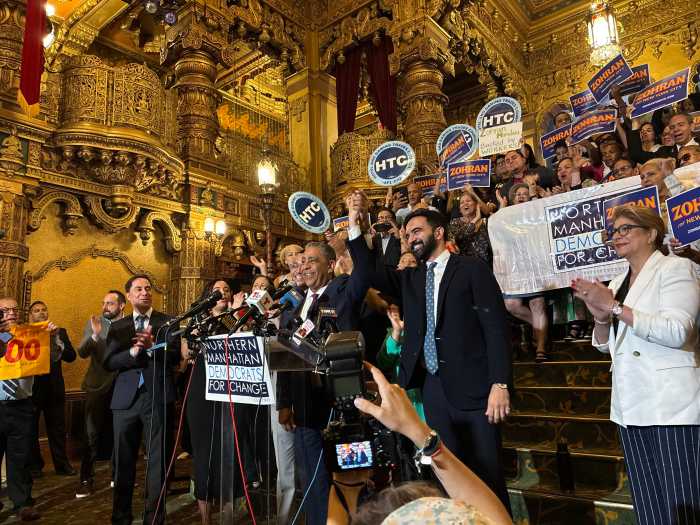As a summer like we have never seen before heads toward its final weeks, we are seeing increasing numbers of people deciding to remain in East End homes that they otherwise would have rented only for the “high season”–a term that is being redefined as we speak. Many are welcome to stay by their landlords, but not all. Indeed, such a situation sits at the heart of one of the great real-estate-based questions that has arisen during these times. We are seeing it in both residential and commercial property. Tenants are disregarding their lease obligations and finding strength in the eviction moratoriums. What is a landlord to do?
In New York State, the eviction moratorium continues and continues and continues. Every time it is about to expire, a new law extends it. That is not to say that there is nothing that can be done by a smart landlord who is dealing with a terrible tenant. Landlords still have rights against non-paying, holding-over or otherwise breaching tenants in both commercial and residential property. Yet, to obtain relief, landlords can’t proceed with yesterday’s process in today’s reality.
If you are still waiting to bring an eviction proceeding, known as a summary proceeding, in landlord / tenant court, stop waiting and shift tactics immediately. The eviction moratorium is here to stay for the near-term. With fall fast approaching and an expected second wave of COVID coming to our state, there will be a refreshed justification to avoid homelessness and small business relief by continuing the moratorium. So, what is a landlord to do with a bad tenant who disregards their obligations under the lease?
This question was recently answered by the Chief US District Judge of the Southern District of New York in the case of Elmsford Apartment Associates LLC v. Cuomo. As background, Elmsford Apartment Associates LLC, together with two other landlords, 36 Apartment Associates, LLC and 66 Apartment Associates, J.V., sued Andrew Cuomo, as Governor of the State of New York, to enjoin the eviction moratorium while arguing that it violated their rights under the United State Constitution’s Contracts Clause, Takings Clause, Due Process Clause and Petition Clause. Simply, the landlords argued that the moratoriums were illegal under the constitution. The court disagreed and dismissed the case.
Without getting into the court’s constitutional analysis, which is a good read for those interested in the balance between personal liberty and the state’s rights to curtail liberty in the face of a pandemic, pragmatic landlords should zero in on this gem of a quote from the court – nothing prevents a “landlords’ right to initiate a common law breach of contract action in the New York State Supreme Court to redress a tenant’s failure to perform its payment obligations under his or her lease.” Let’s unravel this quote for both residential and commercial landlords right now.
A lease is a contract and when it is violated, a landlord can bring a common law breach of contract lawsuit in state Supreme Court, if the amount in dispute is over $15,000, or in state District Court if the amount in dispute is over $15,000 (in NYC, Civil Court is up to $25,000). There is absolutely no requirement that a landlord must bring an eviction proceeding, known as a summary proceeding, in landlord / tenant court (housing court in NYC), which is the subject of the moratorium. Again, as stated by the Chief US District Judge of the Southern District of New York, landlords should bring suit in Supreme Court to protect their contractual rights under their leases.
In fact, Supreme Court offers a lot of advantages to landlords over landlord / tenant court. Initially, Supreme Court can order judgments on items beyond missed rental payments, like additional rental fees (i.e., common area maintenance in commercial, or utilities and upkeep in residential) and future rent payments that were accelerated (not available in residential). Next, Supreme Court can order a judgment against a guarantor, which is unavailable in landlord / tenant court. Finally, smart landlords, who have an attorneys’ fee provision in their lease, can recoup their expenditures in Supreme Court, which is only questionably available in landlord / tenant court (depending on the judge).
Landlords should leverage these three items in commencing a lawsuit in Supreme Court to motivate a tenant to surrender the premises and move out without an eviction order needed whatsoever, which, again, is currently unavailable. Alternatively, landlords should prosecute the action to judgment, which can be enforced for the proceeding twenty years from when the case is over. Plus, that judgment collects nine percent statutory interest, or such other amount of interest as set forth in the lease, from the date of the breach and continuing until the judgment is fully paid and satisfied.
To get paid on that judgment, a landlord-judgment-credit will receive an automatic lien on any real property (i.e., real estate) in the county where the judgment is ordered. Plus, that landlord can enter the lien in any other counties where the tenant owns real property. If the tenant ever wants to sell that real estate, or get a new mortgage against that property, the tenant-debtor first needs to pay and satisfy the lien.
Alternatively, the landlord-judgment-creditors can foreclosure the real property that is the subject of the lien, garnish the tenant-debtor’s wages from the tenant’s job, restrain and levy the tenant-debtor’s bank accounts, or execute on the tenant-debtor’s personal property such as their cars and other vehicles. Again, the name of the game is leverage when you are trying to get a tenant to vacate and surrender property and nothing in the moratorium stops a tenant from surrendering the rental back to the landlord incident to a settlement on the landlord’s rights under the lease. Landlords just need to sue in Supreme Court first to get their tenant’s attention.
If you are a landlord, stop waiting until the end of the moratorium to exercise your rights. As of the writing of this article, evictions commenced on or after March 17, 2020 are suspended, regardless of whether the eviction is commercial, residential, nonpayment or a holdover. There is no end in sight, but if you subscribe to blog.liebatlaw.com, we will update you as there are changes in landlord/tenant law. Until then, sue in Supreme Court or be taken advantage of by your tenant. Those are your only two options.
Andrew M. Lieb, Esq., MPH, is the managing attorney of Lieb at Law P.C. and a contributing writer for Behind the Hedges.























